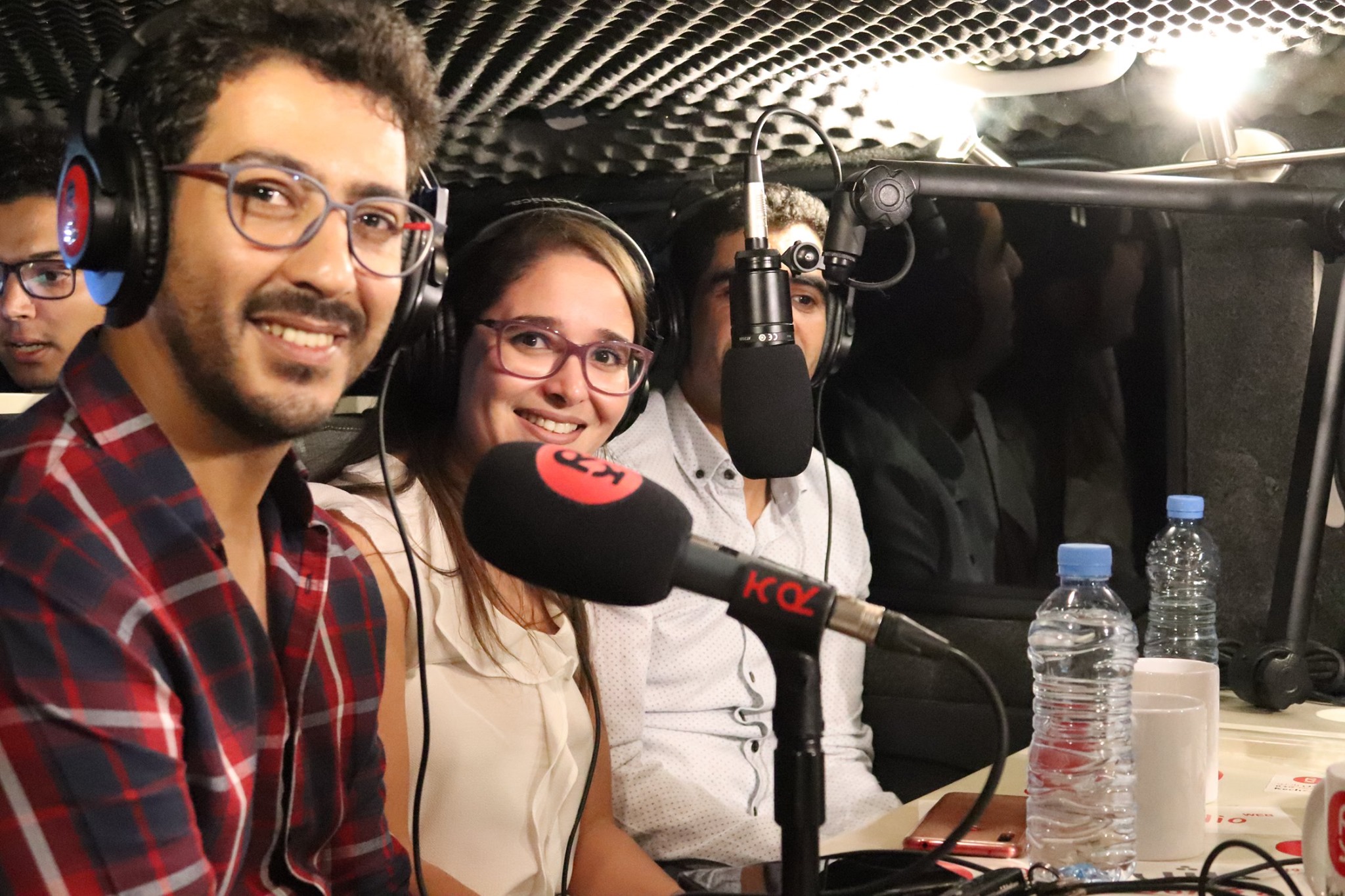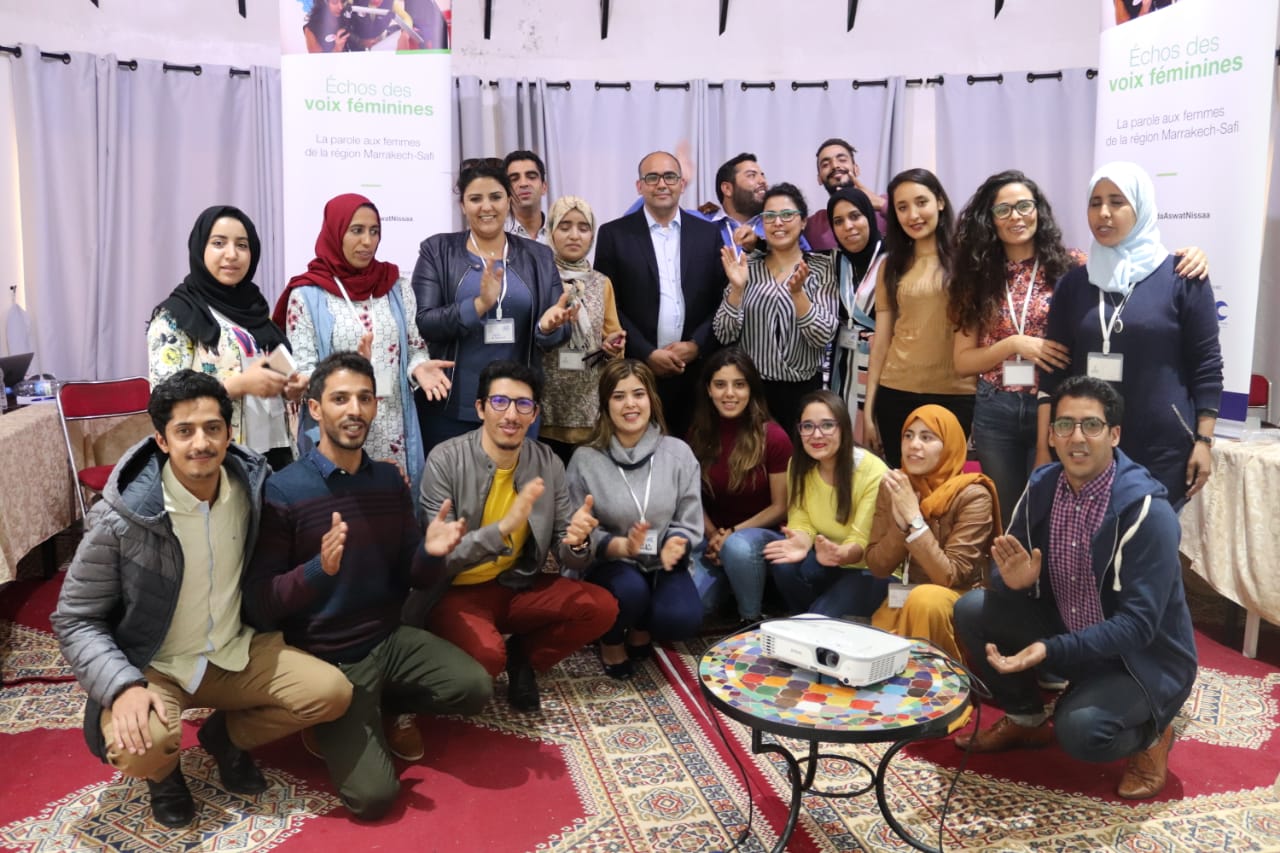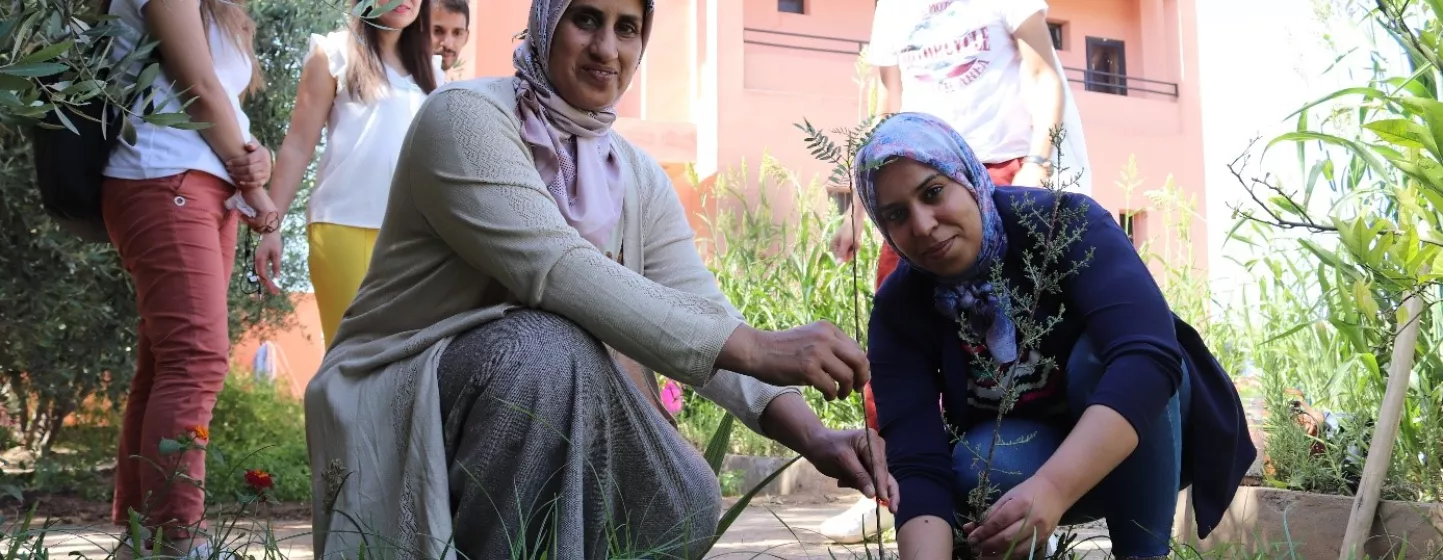Giving a voice to those who go unheard
Echoes of Women's Voices is a project that gives a voice to those who go unheard and which empowers women in the Marrakesh-Safi region talk freely and express themselves. The project provides them with insights into the discrimination they are subjected to and empowers them to bring about change.
For Hafida, it all began on 28 June 2018. When she was asked to participate in the project as a contributor, she accepted immediately. In her opinion, gender equality is a value that is not up for negotiation and never should be. She is aware of the extent to which this apparently simple conviction cannot be taken for granted in a country where women still suffer from significant inequality.
Almost half of all Moroccan women have already suffered physical, psychological or sexual violence and thousands of teenagers are still being forced to marry against their will (1). In rural areas, 60% of women are illiterate, compared with 35% of men. There are also fewer economic opportunities available to them as they subsist largely on agriculture and handicrafts and have only limited access to information, bank loans and training.
(1) Brief by the Moroccan High Commission for Planning, 2019

Providing a mouthpiece for young women in the rural area of Marrakesh-Safi
Echoes of Women's Voices was born of a desire to reduce these inequalities. Run by CFI and the Citizen Initiatives Association (AIC), this project's aim is twofold: to empower women in rural areas so that they take part in public debate and to collectively seek solutions to inequality issues.
For the 25 members of the AIC, pushing back on gender inequality by producing radio content was an obvious choice. Since 2016, the organisation has offered a forum of expression to young Moroccans via its alternative radio station, Kech Radio. This time, it would be broadcasting the voices of young women from the Marrakesh-Safi region, a rural part of Morocco.
Morocco's very first Internet radio station
To engage directly with these women, Kech Radio set up a mobile Internet radio station. For 16 months it travelled through this remote, mountainous region where social barriers are still daunting. For women in this area, talking to the media still flouts local rules of modesty and decorum.
So in order to collect their testimonies, support was needed from other women and men. Sixteen of them, to be precise. These voluntary contributors, mostly members of organisations, ran workshops to prepare for the broadcasts, which helped to establish a relationship of trust with the participants. In Sidi Bouatmane, the women were initially afraid to speak up while holding the microphone, but it was not long before many of them wanted to talk. Berber women from Al Haouz were able to express themselves in their native language, Amazigh, and that made all the difference. Coming from the same douar (2), it was Hafida who arranged the meetings and hosted the programmes.
(2) A rural administrative sub-division of a town council in North Africa

Topics ignored by mainstream media
A total of 360 women aged 15 to 35 from 39 different towns agreed to speak up. They recounted forced marriage, having to drop out of school and shattered dreams. They all would have liked to have been able to complete their education. Today, more than half of them can neither read nor write. Many feel helpless when facing public institutions and undertaking the administrative procedures required to set up a cooperative. They would like to get answers, but these issues are still largely absent from mainstream media outlets and in politics.
Thanks to Echoes of Women's Voices and the three programmes produced (Hannat Ydik, Nissa Raidate and Timgharine), these subjects are finally being aired. Young women from rural areas of Morocco are being heard. The discrimination they have suffered can no longer be erased as their voices are now out there. They resonate well beyond the mountains.
Daring to speak out, a battle already won
For these women, so often confined to the private sphere, speaking in public about their experiences is far from normal. It is a battle they have won. X., a student and community activist, is no longer afraid to speak out: "When I started university, I was invited to speak about the conditions that rural women live in. It was easy for me to take part thanks to my experience with Kech Radio. I no longer feel intimidated". Since then, X. has joined a number of organisations and has convinced other female students to join her.
Shocked into activism
For some contributors, it was the material covered in the programmes that acted as a trigger. This was the case for Najib, for whom the programme on child marriage came as a real shock. Devastated to learn that his own mother was married at the age of 14 and prevented from continuing her education, he embarked on an activist literacy programme. His mother was his first student.
Saadia Daoudi showed the same enthusiasm: "The radio productions for Echoes of Women's Voices broadened my knowledge of human rights and women's rights in particular. [...] Given my clear understanding of the political context, the laws and progress that had been made in women's rights, I decided to enter politics." And she did so successfully, as she is now vice-president of the Zaouiat Ben Hamida town council.
A total of seven former participants in the programmes stood in the local elections (3). Not all of them were elected, but that is not what is important. They claimed their rightful place, they exist. They now know that they have an important role to play. They know that it is up to them to change the narrative, since nobody else will.
If we are to acknowledge the discrimination at play, we must also be aware of the obstacles preventing the emancipation of women and must find the strength to overcome them.
(3) Six women and one man
A dream that is finally within reach: being her own boss
Nadia Knous first realised that women could develop cooperative projects while participating in the project. It sounds simple. It is not. She needed to know her rights. This was what fired her to set up Bioteken, a poultry farming cooperative for women from Douar Oulad Slama to pool their output and find joint commercial opportunities. Like Nadia, many of those women who participated in Echoes of Women's Voices went on to create cooperatives, non-profit organisations and multi-service centres further to the project.
A success for Kech Radio
As for Kech Radio, it broadcasts throughout Morocco and in neighbouring African and Middle Eastern countries. Its members have developed valuable expertise in women's rights and have reached a wide audience in the radio world. Khalil Al Akhiri, who now produces content on subjects related to the rights of women and migrants for Kech Radio exclaims: "I started out as a project contributor, now I'm a project manager!" Other community radio stations, such as Ouaha Web Radio, Radio Al Amal and Radio Tassout have also emerged. They mostly broadcast their programmes using WhatsApp, a widely-used network in the region, where Internet access is more difficult to come by than in other areas and where people do not have equal access to information.
Better informed women listeners, more supportive women
Women listeners have also used WhatsApp to create women-only discussion groups. There they discuss the testimonies that they have heard during the Echoes of Women's Voices programmes. They support and advise one another.
New links are formed, and new solidarity-based relationships emerge. They work together to find solutions to the social, cultural and economic inequalities that they are subjected to. They denounce the political violence that still persists and the transport issues that hinder them on a daily basis. They open up to one another, on air, to elected officials and speak out in public. They are visible in Moroccan society. Not always listened to, but finally heard. And that is already a big step.
Hafida was able to tell her own story for the first time. That of a hopeful young student from a remote douar. She was one of the first rural girls in the province of Chichaoua to graduate from university. She now knows that she will not be the last.
